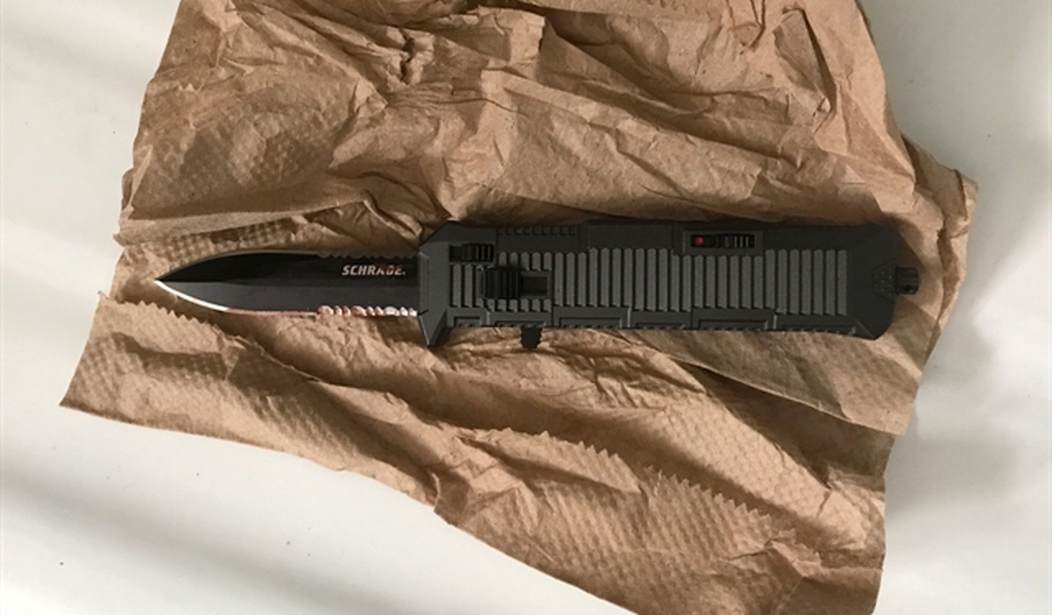Massachusetts banned the possession of switchblades back in 1957, but that prohibition is now history thanks to a unanimous decision by the state's highest court. Earlier this week the Supreme Judicial Court ruled in Commonwealth v. Canjura that switchblades are not "dangerous and unusual" weapons, and are therefore protected by the Second Amendment.
Massachusetts Attorney General Andrea Campbell, who proclaimed she would "step up enforcement" of the state's gun control laws in her 2022 campaign, was quick to decry the decision on social media, calling the ban a "commonsense safety measure".
This case demonstrates the difficult position that SCOTUS has put our state courts in with the Bruen decision & today's result is disappointing.
— Andrea Joy Campbell (@MassAGO) August 27, 2024
Switchblades are dangerous weapons. Prohibiting people from carrying them was a commonsense safety measure.https://t.co/6ksOD6fD1r
According to the SJC, however, there was nothing common sense about the ban. As the justices noted, while the Supreme Court's decisions in Heller, McDonald, and Bruen all dealt with firearms, the Second Amendment's protections extend to bearable arms of all kinds, including knives. And knives have been in common use for lawful purposes, including self-defense, far longer than Massachusetts has been a state.
Of the many varieties of knives, the folding pocketknife played an important role, both as a tool and a weapon. Indeed, as "America developed and its frontiers moved inland," the folding knife increased in popularity enough that it became an "almost universal" accessory. "By the early 1700s, when the eastern seaboard had become a highly settled area with large towns and cities and relatively good roads, men normally carried a folding pocket knife."
...In short, folding pocketknives not only fit within contemporaneous dictionary definitions of arms -- which would encompass a broader category of knives that today includes switchblades --- but they also were commonly possessed by law abiding citizens for lawful purposes around the time of thef ounding. Setting aside any question whether switchblades are in common use today for lawful purposes, we conclude switchblades are "arms" for Second Amendment purposes. Therefore, the carrying of switchblades is presumptively protected by the plain text of the Second Amendment.
Still, the Supreme Judicial Court went on to say that if Massachusetts could show that its switchblade ban fit within the national tradition, then arguably the ban could be upheld.
Here, the Commonwealth attempts to meet its burden by pointing to three Nineteenth Century cases upholding statutory restrictions on certain types of knives, arguing these cases demonstrate a historical tradition of regulating certain knives. We are not convinced.
Although the appellate courts in the cited cases upheld State laws prohibiting the carrying of certain types of knives, none involved regulations of folding pocketknives, let alone switchblades. While it is true the Commonwealth is only required to "identify a well-established and representative historical analogue, not a historical twin," the most apt historical analogue of a modern-day switchblade is the folding pocketknife. Thus, these cases are inapposite because they involve historical regulations of categorically different types of bladed weapons. Beyond these cases, the Commonwealth does not identify any laws regulating bladed weapons akin to folding pocketknives generally, or switchblades particularly, in place at the time of the founding or ratification of the Fourteenth Amendment.
It's somewhat extraordinary to see the SJC adopt a narrow approach to the historical analogues offered by the state, given that other courts have upheld bans on semi-automatic long guns by comparing them to 19th-century prohibitions on things like Bowie knives and billy clubs. The Supreme Judicial Court's approach is much more grounded in both history and the guidance from SCOTUS than what we've seen from judges like U.S. District Judge Robert J. Bryan, who denied an injunction against Washington State's "assault weapon" ban last June after concluding that 18th-century bans on "trap guns" and 19th-century bans on Bowie knives were close enough to serve as historical analogues.
The Massachusetts court, on the other hand, held that switchblades are not only protected by the Second Amendment, but are in "common use" for lawful purposes. There are only seven states (and Washington, D.C.) where switchblades are banned, and only two states prohibit blade lengths longer than two inches. "From these facts, we can reasonably infer that switchblades are weapons in common usetoday by law-abiding citizens for lawful purposes; morespecifically, we can infer they are "widely owned and acceptedas a legitimate means of self-defense across the country," the SJC held.
While the Canjura case dealt exclusively with switchblades, the SJC's opinion also casts doubt on the state's prohibition on so-called assault weapons. Semi-automatic long guns are in common use for a variety of lawful purposes, there are no similar prohibitions on muskets, rifles, or multi-shot firearms found at either the time of the Founding or the ratification of the Fourteenth Amendment, and there are only ten states (along with Washington, D.C.) that prohibit the possession and/or sale of so-called assault weapons today. In fact, I wouldn't be surprised to see Second Amendment advocates cite Canjura when they challenge the expanded ban on "assault weapons" included in the state's newest gun control measure. Under the SJC's analysis, the sweeping semi-auto ban first enacted by Massachusetts in 1998 fails the "text, history, and tradition" test laid out by the Supreme Court, and should be set aside as an infringement on our fundamental Second Amendment rights.










